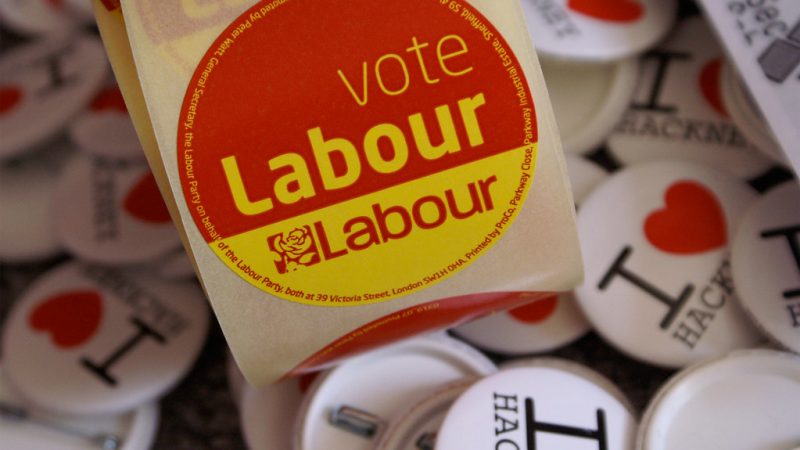'We need someone to offer us hope - hope of affordable housing, of employment rights, of action on inequality.'

Maheen Behrana is a writer and Editor-in-Chief at at BBench.co.uk
It’s not a particularly easy time to be a young person. During the pandemic, mental ill-health has been on the rise for all age groups, but those aged between 16 and 29 have experienced a particularly high prevalence of depressive symptoms.
Younger people have borne the brunt of pandemic job losses and are facing a very uncertain working world. The chances of owning a home as a young person are often slim and insecure rental situations can cause high levels of anxiety.
What young people like myself therefore need is hope. Of course, we need real solutions to all the crises we’re facing today, but for those solutions to present themselves, hope is something of a prerequisite.
The Labour party, traditionally thought of as strong on many of the issues young people are facing, saw a surge in support from young voters in 2017. Admittedly, this was countered by a loss in support among older age groups, but the 2017 ‘youthquake’ that Corbyn has been credited with seems to have lost some of its momentum in recent years.
In the 2019 general election, voter turnout amongst 18-24 year olds slumped to 47%, a decrease of 7% from 2017. This fall happened under Corbyn, and appears to have been indicative of a wider and deepening trend towards voter apathy, particularly amongst young people.
Indeed, overall voter turnout seems to have been steadily decreasing since the 2016 Brexit referendum, with just 67.3% of people casting a vote in 2019. But the disparity between the average turnout and the percentage turnout across the youngest age group is alarming.
At the most recent German federal election, 68% of people across the youngest age group voted. Why is it then that British voters, and in particular the young, seem to be afflicted by a growing trend towards apathy?
There are perhaps many reasons for this, but for young people, a growing disillusionment with contemporary politics may lie behind the trend. While young people may have been more politically disengaged than their older counterparts for some time, young Labour supporters may also be experiencing a growing disconnection with politics and their party of choice.
Labour Party membership soared under Jeremy Corbyn largely due to youth support; membership appears to have fallen since Keir Starmer took over. Membership does not necessarily correlate to political success, but it’s a good indicator of political involvement, enthusiasm and engagement. Some young and non-white former Labour voters also appear to be turning away from the party – and this can only be a worrying sign.
Whatever your thoughts on Jeremy Corbyn, something about his leadership galvanised young people in 2017. While this force had petered out somewhat by 2019, we know that his politics had a defining effect on young Labour supporters.
This isn’t because young voters are intrinsically left-leaning. In other places – such as parts of Germany– young voters have driven surges in far-right support. What Corbyn’s leadership seemed to do is inspire young people with the hope that if they voted things might change for the better.
Youth is often dismissively associated with idealism – but it is unfair to cast aspersions on young people’s hopes and dreams – whether those lie in radical economic reform, racial justice, climate action or all three.
But now, Labour appears to be changing its tune. After the dismal results for Labour in the Hartlepool by-election, MP for Birmingham Perry Barr Khalid Mahmood claimed that Labour had prioritised ‘brigades of woke social media warriors’ over its ‘core’ working class vote.
This dismissal of those who continue to vote Labour – often young renters based in metropolitan hubs – does nothing to further Labour’s chances of galvanising the young – or anyone, for that matter.
Instead, Mahmood’s words are perhaps set to strengthen the tide of hopelessness and apathy that is sweeping through young people in the UK.
Labour needs its young voters. Voting patterns may be changing but that doesn’t have to be a bad thing. Young people are beginning to form a new class of ‘precariat’ – people whose lives are characterised by insecurity.
We need someone to offer us hope – hope of affordable housing, of employment rights, of action on inequality.
These are, fundamentally, Labour values. But without hope, young people can have no confidence in them – or in the notion of a better future.
Left Foot Forward doesn't have the backing of big business or billionaires. We rely on the kind and generous support of ordinary people like you.
You can support hard-hitting journalism that holds the right to account, provides a forum for debate among progressives, and covers the stories the rest of the media ignore. Donate today.



